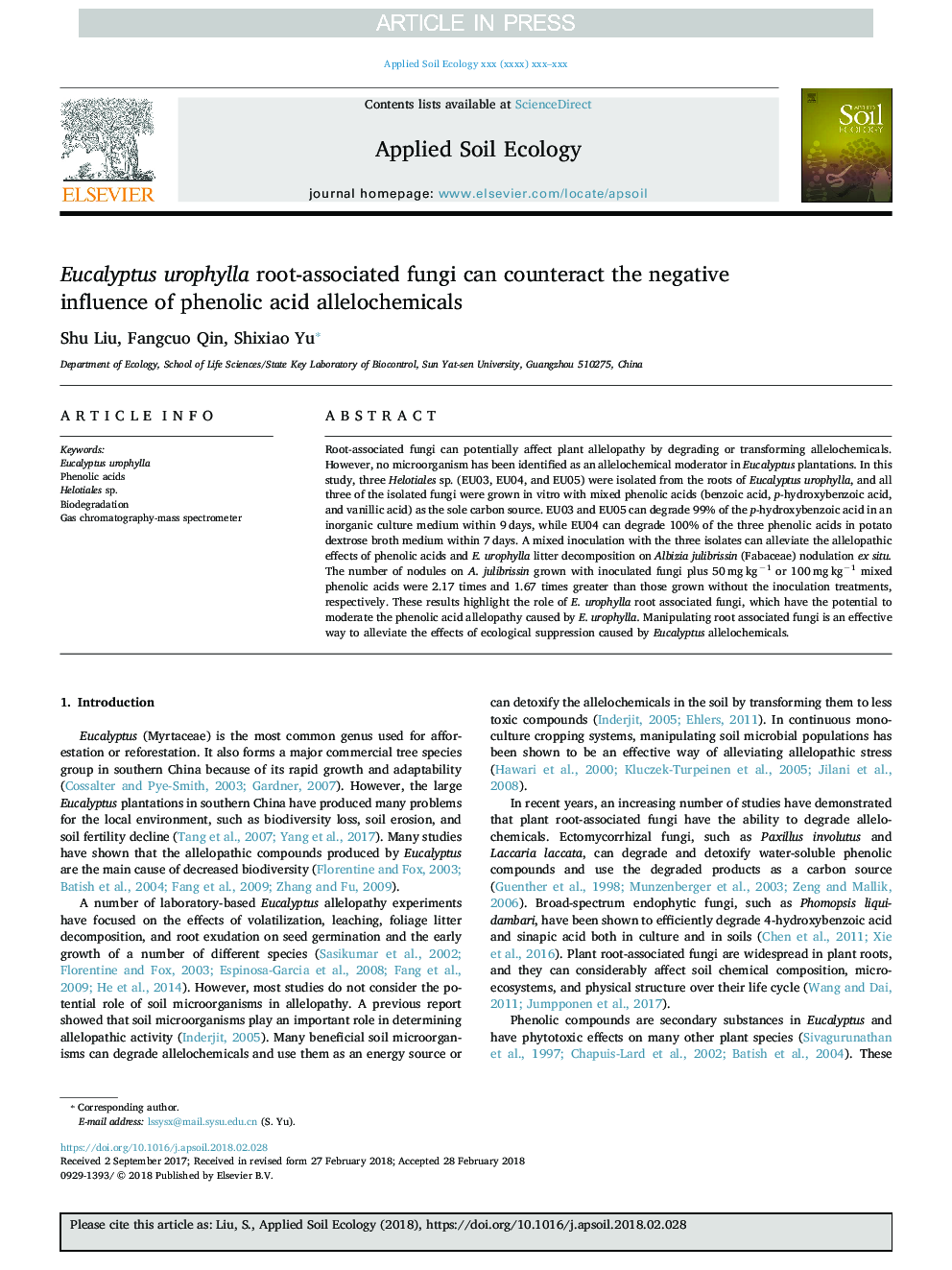| Article ID | Journal | Published Year | Pages | File Type |
|---|---|---|---|---|
| 8846634 | Applied Soil Ecology | 2018 | 7 Pages |
Abstract
Root-associated fungi can potentially affect plant allelopathy by degrading or transforming allelochemicals. However, no microorganism has been identified as an allelochemical moderator in Eucalyptus plantations. In this study, three Helotiales sp. (EU03, EU04, and EU05) were isolated from the roots of Eucalyptus urophylla, and all three of the isolated fungi were grown in vitro with mixed phenolic acids (benzoic acid, p-hydroxybenzoic acid, and vanillic acid) as the sole carbon source. EU03 and EU05 can degrade 99% of the p-hydroxybenzoic acid in an inorganic culture medium within 9â¯days, while EU04 can degrade 100% of the three phenolic acids in potato dextrose broth medium within 7â¯days. A mixed inoculation with the three isolates can alleviate the allelopathic effects of phenolic acids and E. urophylla litter decomposition on Albizia julibrissin (Fabaceae) nodulation ex situ. The number of nodules on A. julibrissin grown with inoculated fungi plus 50â¯mgâ¯kgâ1 or 100â¯mgâ¯kgâ1 mixed phenolic acids were 2.17 times and 1.67 times greater than those grown without the inoculation treatments, respectively. These results highlight the role of E. urophylla root associated fungi, which have the potential to moderate the phenolic acid allelopathy caused by E. urophylla. Manipulating root associated fungi is an effective way to alleviate the effects of ecological suppression caused by Eucalyptus allelochemicals.
Related Topics
Life Sciences
Agricultural and Biological Sciences
Ecology, Evolution, Behavior and Systematics
Authors
Shu Liu, Fangcuo Qin, Shixiao Yu,
